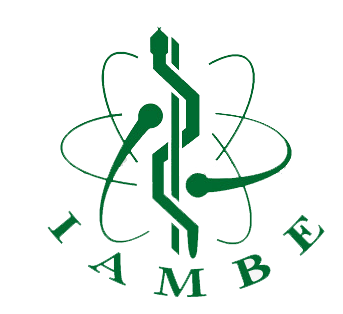LnRiLWZpZWxke21hcmdpbi1ib3R0b206MC43NmVtfS50Yi1maWVsZC0tbGVmdHt0ZXh0LWFsaWduOmxlZnR9LnRiLWZpZWxkLS1jZW50ZXJ7dGV4dC1hbGlnbjpjZW50ZXJ9LnRiLWZpZWxkLS1yaWdodHt0ZXh0LWFsaWduOnJpZ2h0fS50Yi1maWVsZF9fc2t5cGVfcHJldmlld3twYWRkaW5nOjEwcHggMjBweDtib3JkZXItcmFkaXVzOjNweDtjb2xvcjojZmZmO2JhY2tncm91bmQ6IzAwYWZlZTtkaXNwbGF5OmlubGluZS1ibG9ja311bC5nbGlkZV9fc2xpZGVze21hcmdpbjowfQ==
TW9udHNlcnJhdDo2MDAscmVndWxhciw1MDA=
LnRiLWZpZWxkW2RhdGEtdG9vbHNldC1ibG9ja3MtZmllbGQ9ImVjMWNjYjkwNWI1ZTBmMGM1Y2M3YjhlNzhhMjU5OWQxIl0geyBmb250LXNpemU6IDE0cHg7Zm9udC1mYW1pbHk6IE1vbnRzZXJyYXQ7Zm9udC13ZWlnaHQ6IHJlZ3VsYXI7IH0gIC50Yi1maWVsZFtkYXRhLXRvb2xzZXQtYmxvY2tzLWZpZWxkPSI2ZjczYjQzMWRlYjhlN2MzZDhmYTY3OTNiYWEyNzk0ZSJdIHsgZm9udC1zaXplOiAyMHB4O2ZvbnQtZmFtaWx5OiBNb250c2VycmF0O2ZvbnQtd2VpZ2h0OiA1MDA7IH0gIC50Yi1maWVsZFtkYXRhLXRvb2xzZXQtYmxvY2tzLWZpZWxkPSI1NzVjMDY5MGY2ZTFhYjlmYWMzMGM5MWJjMzZlYjZmYSJdIHsgZm9udC1zaXplOiAyMHB4O2ZvbnQtZmFtaWx5OiBNb250c2VycmF0O2ZvbnQtc3R5bGU6IGl0YWxpYztmb250LXdlaWdodDogcmVndWxhcjt0ZXh0LWFsaWduOiBsZWZ0OyB9ICAudGItZmllbGRbZGF0YS10b29sc2V0LWJsb2Nrcy1maWVsZD0iNjY1MjA4ZjdiZTc1MWU3MjkxYzNhNzI1YjY1YjdlYjciXSB7IGZvbnQtc2l6ZTogMzZweDtmb250LWZhbWlseTogTW9udHNlcnJhdDtmb250LXdlaWdodDogNjAwO2xpbmUtaGVpZ2h0OiA1MHB4OyB9ICAudGItaW1hZ2V7cG9zaXRpb246cmVsYXRpdmU7dHJhbnNpdGlvbjp0cmFuc2Zvcm0gMC4yNXMgZWFzZX0ud3AtYmxvY2staW1hZ2UgLnRiLWltYWdlLmFsaWduY2VudGVye21hcmdpbi1sZWZ0OmF1dG87bWFyZ2luLXJpZ2h0OmF1dG99LnRiLWltYWdlIGltZ3ttYXgtd2lkdGg6MTAwJTtoZWlnaHQ6YXV0bzt3aWR0aDphdXRvO3RyYW5zaXRpb246dHJhbnNmb3JtIDAuMjVzIGVhc2V9LnRiLWltYWdlIC50Yi1pbWFnZS1jYXB0aW9uLWZpdC10by1pbWFnZXtkaXNwbGF5OnRhYmxlfS50Yi1pbWFnZSAudGItaW1hZ2UtY2FwdGlvbi1maXQtdG8taW1hZ2UgLnRiLWltYWdlLWNhcHRpb257ZGlzcGxheTp0YWJsZS1jYXB0aW9uO2NhcHRpb24tc2lkZTpib3R0b219IC50Yi1pbWFnZVtkYXRhLXRvb2xzZXQtYmxvY2tzLWltYWdlPSI2NTEyMjIyNGJiNGRkZjhiMTlhMWVhMDFkZGQwNzU2ZCJdIHsgbWF4LXdpZHRoOiAxMDAlOyB9IC50Yi1pbWFnZVtkYXRhLXRvb2xzZXQtYmxvY2tzLWltYWdlPSI2NTEyMjIyNGJiNGRkZjhiMTlhMWVhMDFkZGQwNzU2ZCJdIGltZyB7IHBhZGRpbmctYm90dG9tOiA1MHB4O2JvcmRlcjogMHB4IHNvbGlkIHJnYmEoIDAsIDAsIDAsIDEgKTsgfSBAbWVkaWEgb25seSBzY3JlZW4gYW5kIChtYXgtd2lkdGg6IDc4MXB4KSB7ICAgICAudGItaW1hZ2V7cG9zaXRpb246cmVsYXRpdmU7dHJhbnNpdGlvbjp0cmFuc2Zvcm0gMC4yNXMgZWFzZX0ud3AtYmxvY2staW1hZ2UgLnRiLWltYWdlLmFsaWduY2VudGVye21hcmdpbi1sZWZ0OmF1dG87bWFyZ2luLXJpZ2h0OmF1dG99LnRiLWltYWdlIGltZ3ttYXgtd2lkdGg6MTAwJTtoZWlnaHQ6YXV0bzt3aWR0aDphdXRvO3RyYW5zaXRpb246dHJhbnNmb3JtIDAuMjVzIGVhc2V9LnRiLWltYWdlIC50Yi1pbWFnZS1jYXB0aW9uLWZpdC10by1pbWFnZXtkaXNwbGF5OnRhYmxlfS50Yi1pbWFnZSAudGItaW1hZ2UtY2FwdGlvbi1maXQtdG8taW1hZ2UgLnRiLWltYWdlLWNhcHRpb257ZGlzcGxheTp0YWJsZS1jYXB0aW9uO2NhcHRpb24tc2lkZTpib3R0b219IH0gQG1lZGlhIG9ubHkgc2NyZWVuIGFuZCAobWF4LXdpZHRoOiA1OTlweCkgeyAgICAgLnRiLWltYWdle3Bvc2l0aW9uOnJlbGF0aXZlO3RyYW5zaXRpb246dHJhbnNmb3JtIDAuMjVzIGVhc2V9LndwLWJsb2NrLWltYWdlIC50Yi1pbWFnZS5hbGlnbmNlbnRlcnttYXJnaW4tbGVmdDphdXRvO21hcmdpbi1yaWdodDphdXRvfS50Yi1pbWFnZSBpbWd7bWF4LXdpZHRoOjEwMCU7aGVpZ2h0OmF1dG87d2lkdGg6YXV0bzt0cmFuc2l0aW9uOnRyYW5zZm9ybSAwLjI1cyBlYXNlfS50Yi1pbWFnZSAudGItaW1hZ2UtY2FwdGlvbi1maXQtdG8taW1hZ2V7ZGlzcGxheTp0YWJsZX0udGItaW1hZ2UgLnRiLWltYWdlLWNhcHRpb24tZml0LXRvLWltYWdlIC50Yi1pbWFnZS1jYXB0aW9ue2Rpc3BsYXk6dGFibGUtY2FwdGlvbjtjYXB0aW9uLXNpZGU6Ym90dG9tfSB9IA==
Chuanbin Mao
Chinese University of Hong Kong, China
2023
TW9udHNlcnJhdDo2MDAscmVndWxhciw1MDA=
Chuanbin Mao is currently a Professor at the Department of Biomedical Engineering of the Chinese University of Hong Kong and the director of Jockey Club STEM Lab of Nature-Inspired Precision Medical Engineering. His group has genetically engineered phages for successfully assembling nanoparticles, seeking cell-/tissue-targeting peptides, detecting biomarkers for cancer diagnosis, inducing stem cell differentiation, promoting drug/gene delivery and tissue regeneration, and developing nano-theranostic agents. In addition to 1 book and 11 book chapters, he has published over 300 journal articles in highly ranked journals such as Chemical Reviews, Science, Nature Materials, Nature Nanotechnology, Nature Biomedical Engineering, Nature Communications, Progress in Materials Science, Materials Science & Engineering R, Advanced Materials, Progress in Polymer Science, Journal of Hepatology, Accounts of Chemical Research, Advanced Functional Materials, Matter, Nano Today, ACS Nano, Angewandte Chemie International Edition, Advanced Drug Delivery Reviews, Advanced Science, Journal of American Chemical Society, Biomaterials, Materials Horizons, Biosensors & Bioelectronics, PNAS, and Nano Letters. He is ranked as one of the world’s top 2% scientists by Stanford University. He has been elected as a fellow of 9 prestigious professional societies, including American Association for the Advancement of Science (AAAS), American Academy of Microbiology (AAM), American Chemical Society (ACS), American Institute for Medical and Biological Engineering (AIMBE), Biomedical Engineering Society (BMES), Hong Kong Institute of Engineering (HKIE), International Academy of Medical and Biological Engineering (IAMBE), ACS Division of Polymeric Materials Science & Engineering (PMSE), and Royal Society of Chemistry (RSC). He has won multiple awards, such as Global STEM Scholar from Hong Kong SAR, US National Science Foundation (NSF) CAREER award, Oklahoma New Scientist Award, and All-China Most Outstanding Doctoral Dissertation Prize.

